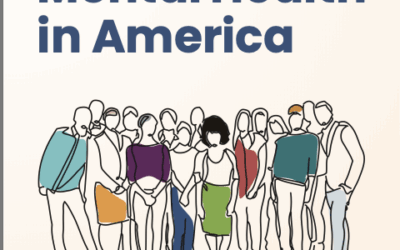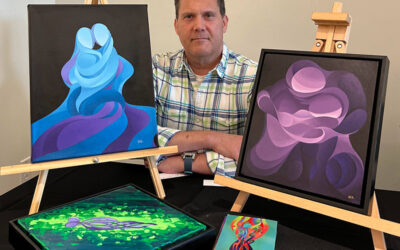“We’re overwhelmed.”
I heard this over and over from college counselors who stopped by our exhibit table at the Virginia Counselors Association conference last month.
At both public and private universities, in rural and urban areas of Virginia, the number of students seeking help from the counseling center has increased dramatically, doubling in just a year at some institutions. Student crisis episodes and suicides have touched more campus communities than in the past. Administrators are scrambling to provide more resources and reduce long waits for service.
A recent report from the Associated Press looked at data from 39 of the largest public universities across the country. Over the past four years, 35% more students received mental health treatment while total enrollment increased 5%. Some colleges have only one counselor for every 4,000 students, while the recommended norm is one per 1,500 students. It takes weeks at many schools for students to get an appointment.
Mental Health America of Virginia’s website has a link to on-line mental health screening tools. Screening results show Virginia young people are most concerned they may need treatment for depression or anxiety. Nearly 50% of the 2,790 people who took one of our free mental health screenings between April and June identified as students, and 29% who took a screen were between 18 and 24 years old. Of those taking the depression screen, 30% scored in the moderate to severe range for depression.
Why is this happening? The counselors I spoke with suggested there are multiple factors, reflecting both set-backs and progress in our culture at large. There are more incidents of anxiety and depression in young people, combined with less stigma associated with talking about one’s mental health and asking for help.
Today’s students overall carry more worries about financial debt, and a sense of the future that is less certain or optimistic than their parents’ generation. The social stress associated with college life, like negotiating intimate relationships and risky behaviors, is multiplied by the destructive impacts of excessive social media and cyber-bullying. And it’s not just college students who are more depressed and anxious – their parents are too.
Any decrease in stigma around mental health is cause for enthusiastic celebration. We have a long way to go, but ultimately this is what brings parity in mental and physical health prevention and treatment. The more of us who see mental health as part of everyone’s overall health, the more of us get the treatment and support we need to live a healthy life.
But shrinking stigma must be tethered to expanding resources. Otherwise we’re setting up our young people for the worst scam ever, as if we ask our child to tell us when she feels bad and needs help, and when she does we don’t help her.
Like everyone else, a college student’s access to mental health care is limited by Virginia’s shortage of professionals working in the behavioral health field (ranking 40th in the country according to MHA’s annual State of Mental Health report).
We must do better. All schools (K-12 and college) should have minimum counselor to student ratios in line with the industry standard. Administrators can cultivate partnerships with community health care providers, including telehealth options, to ensure students and families are aware of local resources outside of the campus that are accessible and culturally competent. Colleges should invest in on-line resources for students and welcome peer group supports. Peer models, such as the Well at Virginia Commonwealth University, provide valuable support and are being replicated on several other campuses.
We should advocate for all of the above, and individually we can reach out to a student, and anyone we know who is in distress, to listen and show that we care.
Bruce N. Cruser, Executive Director
Mental Health America of Virginia



